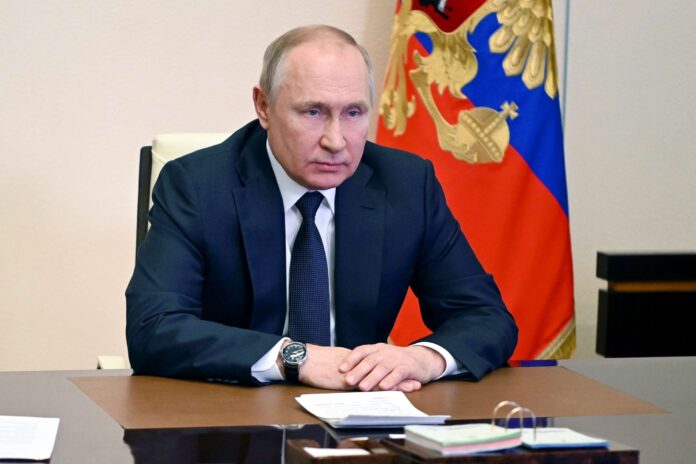Author: John Herbst
Affiliation: The Eurasia Center at the Atlantic Council
Organization/Publisher: The National Interest
Date/Place: February 28, 2021/ USA
Type of Literature: Debate Article
Word Count: 1912
Link: https://nationalinterest.org/feature/resisting-russia-178866
Keywords: Russia-Putin, US-Biden, Hegemony, Confrontation, and Coexistence
Brief:
The article comes in the context of a debate that appeared in the recent issue of the National Interest magazine between the American specialist in Russian affairs John Herbst (who served as the US ambassador to Ukraine) and the Russian expert Dmitry Simes (whose article was briefed in issue No. 68 of GPC). The main two questions of this debate were: How should Biden deal with Russia? Are relations between the United States and Russia heading towards coexistence or a potential confrontation? In this article, Herbst calls Biden’s administration to review US policy toward the Kremlin after years of leniency with Russia-Putin under the Obama and Trump administrations. Thus, he criticizes approaches based on dialogue and makes a new effort to “understand Russia”. In return, he advocates for a firm policy against Russia that would make it back down from its revisionist aggressive policy. According to him, Russia is a power in decline due to its faltering economy and the great corruption that gnaws it, but it has huge military power. So, this decline should not be exaggerated or underestimated. The most important thing is to focus on Russian aggressive behaviour and finding effective ways to curb it. Putin does not hide his revisionist goals, believing that Russia must gain spheres of influence and re-establish new rules for the global order, or that there will be no rules. In short, Putin wants to rewrite history. With practical examples, the author tries to prove this claim, referring to the Russian cyber-attacks on Estonia in 2007, the war on Georgia in 2008, the war on Ukraine and the annexation of Crimea in 2014, and the unclassified war now in the Donbas region in eastern Ukraine. In addition to the Kremlin’s aggressive activities across Europe, the author calls out secret assassinations of opponents abroad, cyber-attacks against the United States, interference in its elections, as well as Russian adventures in Afghanistan, Libya, Syria, and Venezuela. From the author’s perspective, all these events are part of a comprehensive policy designed to destabilize the international system and harm US interests. Therefore, the dangerous tense relations between Washington and Moscow are mainly due to Moscow’s clear intentions and Washington’s decision to protect its interests from Putin’s aggressive designs. After clarifying his perceptions of Russia-Putin, the author offers detailed recommendations on how Biden should behave toward Russia. The first step is to repair Washington’s relations with allies and friends, as the US’ ability to deter and contain the Kremlin will be more effective and less costly if it engages its NATO allies, Japan, South Korea, and others. NATO’s presence and combat capabilities should be strengthened in south-eastern Europe, the Baltic, and the Black Sea. Also, he calls for greater cooperation with Romania, Ukraine, and Georgia as well as persuading Ankara and Sofia to make more efforts in this regard. The author also urges strengthening cooperation with the European Union to ensure a more effective sanctions policy against Moscow in order to curb its aggressive behaviour in Ukraine, Belarus, Georgia, and Europe in general. He believes that tightening explicit sanctions represents a viable deterrent solution in this regard, as it should not be ended unless Russia ends its aggressive behaviour. Countering this aggressive behaviour, the author advocates for raising the cost on the battlefield and inflicting losses in the lives of Russian soldiers to weaken Putin’s political position, who hides from his people the reality of the Russian soldiers’ presence in eastern Ukraine and other regions of the world. On the level of cyber warfare, Herbst recommends the development of a deterrent policy for Russian cyber operations based on reciprocating through costly cyber-attacks that harm the Kremlin, and exposing the corruption of Putin and his aides by leaking true data to Russian social media about their holdings from the West in order to undermine his credibility and the legitimacy of his rule. Finally, Washington must assert its determination to confront the Kremlin of its provocative policies, as well as its willingness in return to cooperate with Russia in the areas of common interests between the two countries, and even Washington’s willingness to establish partnership relations if Moscow abandons its revisionist policy. Most importantly, Washington should increase its communication with the Russian people through cultural exchange programs and students in order to shape a new open-minded generation. “At some point in the next generation, the Kremlin will realize that the United States is not its principal national security challenge. The United States has no designs on Russia’s territorial integrity or sovereignty. Moscow’s principal challenge is China”. Therefore, the US and Russia should join efforts to deal with a rising, revisionist China that threatens both of them.
By: Djallel Khechib, CIGA Senior Research Associate




